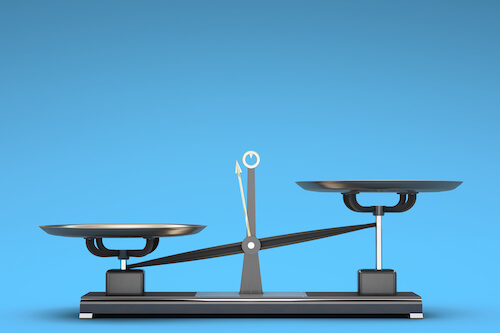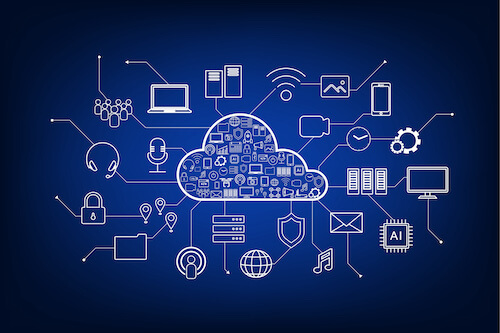Email Archiving GDPR Compliance: A Guide to Protecting Personal Data
Discover how Email Archiving GDPR compliance can be achieved with secure and scalable solutions, ensuring data protection and adherence to...
Your organization is thriving, and the volume of email communications grows exponentially each day. You're confident in ...
Your organization is thriving, and the volume of email communications grows exponentially each day. You're confident in your current backup solution, but suddenly, you face a legal inquiry that requires access to specific emails from years ago.
You scramble through countless backups only to realize locating those crucial emails is like finding a needle in a haystack. Time-consuming and frustrating, right?
Welcome to the world of Email Archiving versus Backup - two essential components for safeguarding your electronically stored information (ESI) while ensuring regulatory compliance and efficient data management.
In this blog post, we will dive deep into understanding the purposes of email archive and backups, their benefits and limitations, industry-specific regulations requiring compliance, as well as best practices for implementing successful archiving and backup solutions.

Let's kick things off by diving into the world of email data management.
To make informed decisions, it's crucial to understand the differences between email archiving versus backup.
While both methods help preserve critical information, they serve distinct purposes with unique benefits and limitations.
Email archiving is all about long-term retention of electronically stored information (ESI), ensuring that your organization's valuable emails remain accessible for years to come.
This approach helps maintain compliance with regulations, simplifies eDiscovery processes, and reduces storage space requirements through de-duplication and compression techniques.
Backups focus on short-term protection against data loss due to system failures or human errors.
The primary goal here is disaster recovery - being able to quickly restore lost or corrupted emails from a recent snapshot without impacting user productivity too much.
In essence, while both strategies aim at preserving important email communications in one way or another; each has its specific use cases depending on an organizations needs.
Email archiving solutions are not just about storing emails. They offer a plethora of benefits that traditional email backup systems simply can't match. Let me break it down for you:
So, why choose email archiving over traditional backup systems? Email archiving offers a range of benefits that traditional backup systems simply can't match. With email archiving, all emails are stored and easily accessible, ensuring that all electronically stored information is safe and secure.
Let's face it, backups have their shortcomings. While they can be a lifesaver in certain situations, there are some drawbacks that decision-makers should consider before relying solely on this method for preserving crucial email data.
Traditional backups can have the effect of replacing earlier versions with more recent ones as time passes. This might not seem like a big deal at first glance, but it could lead to the permanent loss of unrecovered emails if you're not careful.
Backup solutions often require full database restorations when recovering lost or corrupted messages - and let me tell you, this process isn't always smooth sailing. In fact, during these restorations, there's a chance your organization may experience data loss.
There are alternatives available that help mitigate these limitations while still providing robust protection for your valuable electronically stored information (ESI).
Email archiving solutions, for example, offer instant access to archived emails without the need for risky full restorations or overwriting previous snapshots.
It's important to remember that email backups and archiving serve different purposes, so don't toss out your backup strategy just yet. Instead, consider combining both approaches to ensure comprehensive protection for your organization's email communications - because when it comes to safeguarding valuable data, two is always better than one.
Let's delve into the details to see when each approach is most suitable for various circumstances in order to make a well-informed decision about email archiving and backup solutions.
Email archiving is essential when your organization needs long-term retention of electronically stored information (ESI) such as emails and attachments. This method comes in handy for complying with industry regulations like HIPAA or SEC Rule 17a-4, which require specific retention policies for certain types of data.
Email backup solutions are perfect if you're looking for short-term protection against data loss due to hardware failures, human errors, or cyberattacks like ransomware infections. A successful backup strategy ensures quick disaster recovery by restoring lost or corrupted emails from recent backups without affecting other users' mailboxes.
Different organizations have unique requirements that may call for one solution over another - or even a combination of both. Understanding your organization's specific needs, regulatory requirements, and email data volume will help you choose the most appropriate approach for managing email communications effectively.
In the end, it all comes down to finding the right balance between archiving and backup strategies that best suit your organization's unique needs.
So, you've learned about email archiving and backup. Now it's time to combine these two approaches for the ultimate data protection strategy.
Let's dive into how large organizations can benefit from using both approaches simultaneously.
Email archiving offers instant access to archived emails while ensuring long-term retention and compliance with regulations. On the other hand, email backups provide a safety net against data loss in case of server crashes or user errors.
By combining these two strategies, you can achieve comprehensive protection for your organization's email communications.
Align your email archiving and backup strategies with your organization's retention policies to ensure a smooth, hassle-free experience. Uncover the equilibrium between these two techniques to craft a strong data handling plan that fits your needs.
Some organizations may go down the route of implementing archiving or backup in an on-premise solution. It's a traditional data backup solution which many veteran IT professionals will be familiar with. There are many things to consider if you go down this path:
An email archiving system might also help you eliminate mailbox quotas if your user population is using on-premise Microsoft Exchange. This might also mean that you do not need to expand your email server or your estate of email servers in the future. However, if you're already using, or plan to use, Microsoft 365 then there might be other options to consider, rather than an on-premise solution.

As the digital landscape evolves, so do our data management strategies, this is especially true when it comes to email archiving and backup. That's where cloud-based solutions come in - a modern approach to email archiving and backup that offers flexibility and scalability.
Some organizations might need help in choosing between on-premise or a cloud based email archiving system. If your organization needs help, check out this article.
Overall, it is important for decision makers and leadership teams in large organizations to understand the differences between email archiving versus backup. While backups serve as a safety net in case of data loss or corruption, email archiving solutions offer benefits such as regulatory compliance, efficient eDiscovery processes, and reduced storage requirements. However, limitations of email backups include incomplete recovery from previous snapshots and difficulty locating specific information.
In regulated industries such as finance, healthcare, and legal sectors where compliance is crucial, implementing both archiving and backup solutions can help ensure optimal data management strategy.
Discover how Email Archiving GDPR compliance can be achieved with secure and scalable solutions, ensuring data protection and adherence to...
Explore Email Archiving Protection for businesses, ensuring data security, compliance, and safeguarding against cyber threats.
Learn how to create an effective email archiving policy. Discover best practices for data security, compliance and storage management.